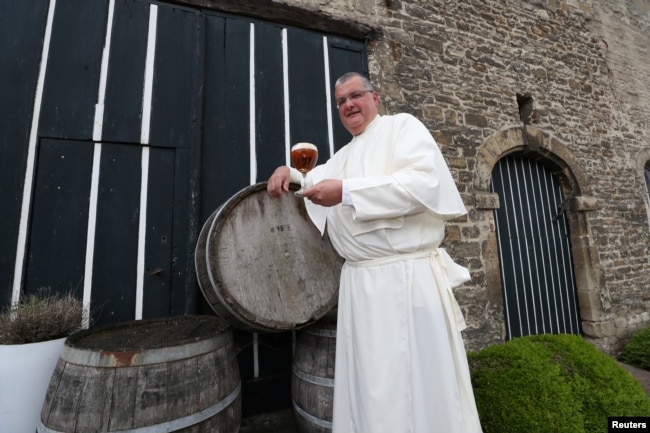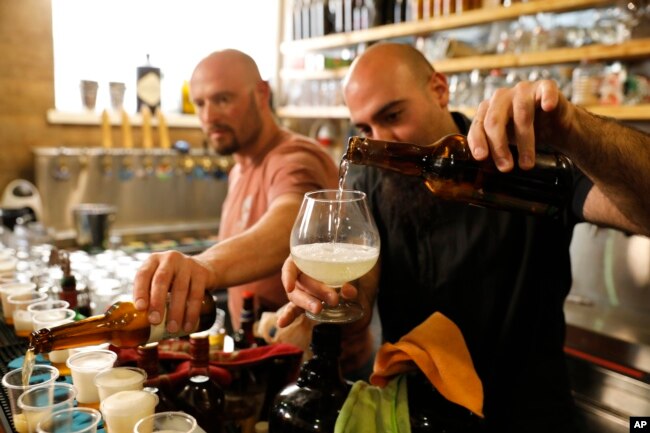Beer lovers --- and makers -- are always looking for new and interesting versions of the drink. But recent efforts in Israel and Belgium are aiming to bring back beers from long ago.
Monks first began brewing beer at the Grimbergen Abbey in the 13th century. But they stopped doing so in the late 1700s, after French troops damaged parts of the property – including the brewing area.
Father Karel Stautemas is one of 11 religious members who now live in the abbey. This month, he announced plans for a newly built brewery inside the abbey. More than 100 reporters, city leaders and beer lovers gathered in the town of Grimbergen for his announcement.
The abbey has been linked to commercial beer makers since the 1950s, when local brewer Maes asked the monks to use the Grimbergen name on its “abbey beer.”
The monks will follow centuries-old methods for manufacturing beer. The directions come from a collection of old books found inside the abbey.
Grimbergen’s monks will also follow the rules of Belgium’s Trappist beer makers, although they are not members of the Trappist order. Such rules require the religious workers to brew the beer within abbey walls and use any money earned to repair the building and support charitable causes.
The interest in ancient brewing methods is not limited to Belgium. Researchers in Israel announced recently they have removed yeast from the remains of containers found at ancient sites and have used the remains to create a beer similar to the kind that Egyptian pharaohs enjoyed thousands of years ago. Beer was a popular drink in ancient Egypt and Mesopotamia. Early Egyptian writings describe many different brews, including “iron beer,” ″friend’s beer,” and “beer of the protector.”
Last Wednesday, researchers from Jerusalem’s Hebrew University and Tel Aviv University presented a beer made with yeast that came from an ancient jar.
Hebrew University microbiologist Michael Klutstein said, “What we discovered was that yeast can actually survive for a very, very long time.”
The researchers plan to combine ancient methods with more modern ways to brew a beer that could one day be produced in large amounts.
You can also watch the video by clicking on the Play Button
Article from VOA (edited)


